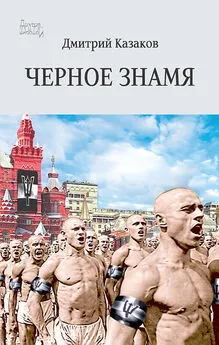Dmitrii Taganov - Marilyn Monroe’s Russian Resurrection
- Название:Marilyn Monroe’s Russian Resurrection
- Автор:
- Жанр:
- Издательство:неизвестно
- Год:2021
- ISBN:нет данных
- Рейтинг:
- Избранное:Добавить в избранное
-
Отзывы:
-
Ваша оценка:
Dmitrii Taganov - Marilyn Monroe’s Russian Resurrection краткое содержание
Marilyn Monroe’s Russian Resurrection - читать онлайн бесплатно ознакомительный отрывок
Интервал:
Закладка:
Having felt a chill in a backbone at the prospects of his discovery, the academician instantly proclaimed all information on this subject as classified material. He called the First department of his laboratory, a branch of secret police KGB , to be the watchdog of his top secret research. The next day Sedov, as a member of Party’s Central Committee, applied for an appointment with the powerful chief of Soviet secret police KGB , comrade Yuri Andropov. In a week Sedov entered with self-assured stride the office in the most dreaded building during gulag years on Lubyanka square.
The academician explained KGB chief as simply as he could the essence of his discovery. The tall elderly man just silently and patiently watched him through his glasses, asking no questions. Then he suddenly cut short the academician, “Whom do you intend to clone first?”
Academician faltered: he never thought of that. At least he never thought about his human clones as of real people with regular names and surnames of their prototypes. Being a scientist, he always imagined them being nude and virgin as biblical Adam and Eva.
“Well, we haven’t yet planned that. I mean … may our Party decide that, because of immense importance and implied consequences of such action.”
“OK, can you clone, or copy, or whatever – can you resurrect all the Old Bolsheviks massacred by Joseph Stalin? Can you resurrect entire old Lenin’s guard?”
Struck dumb, scientist said, “I think, yes, we can possibly try. Why?”
“These days of moral decay we need as never before, as an air in our lungs, their enthusiasm, their revolutionary gust, their Bolshevist courage. They would kind of vaccinate all of us, all our country. They would inspire our Party with a new life, with a new flame and ideas!”
“Yes, comrade Andropov, we could do this, that is a great honor for us,” uttered the academician, coining the words. “Their genetics materials had been wisely preserved with an incredible far-sight by Soviet scientists in the twenties; it’s in excellent condition: the body tissues, brain slices. I know it as a curator of Organics laboratory which oversee the body of immortal Lenin in his mausoleum .”
“Fine. Yet, don’t you breathe a word to anyone. Do you understand? All I said is a top state secret. You will be informed of my decision. Go to your work, and don’t waste any time.”
Academician waited nearly a year for this decision to be relayed to him, but the government-direct-line telephone in his office, vertushka , was silent. Suddenly – as can be sudden the death of a sick eighty-year old – died current Secretary General who ruled the country for more than twenty years. It also triggered the coming death-harvesting of gerontokratia in the Party’s Politburo. He was buried with a pomp and artillery salutation in the grave near the Kremlin wall on the Red Square. The next Secretary General, the third in history of the Party, was elected by the intimate circle of old members of Politburo. They elected KGB chief Yuri Andropov.
When academician saw a foot-high photo of the new Secretary General in the party paper Pravda he announced top alert warning in his laboratory, though everything was ready months ago. All the previous year, not yet having any directives from above, the academician, using his position of a member of the Central Committee, could manage to get the cuts of the brain and samples of body tissues of almost all Lenin inner circle Bolsheviks of early twenties, of all legendary Lenin “Old guard” ruined later by Joseph Stalin. In his hyper-freezers were also stored now ready for initial experiments the tissues of great poets and scientists of the country. All these precious materials came from the Institute of Brain, laboratory, organized by Bolsheviks, and which received in mandatory manner the brains of all the state’s elite who died in the twenties and the thirties of natural causes or not. These brains came, and that was registered by photographs, in a shallow bathroom basins, covered with plain towels, for consequent weighing, cutting into paper-thin slices, and then a profound research. It was universally believed that disclosing of the mystery of human genius was a matter of paramount importance for a young Soviet science. In those famine-years, when millions died deprived of the bread that was sold abroad for machinery for the industrialization , this Institute of Brain was granted precious death-tolled gold to purchase in Germany a marvelous machine that could cut off finest, almost transparent layers of human brain, as a ham in a food store. Of course, those scientists didn’t decipher the riddle of human intelligence with those translucent pink-colored films, but, nevertheless, they stored them as a priceless treasure, each one between two glasses, inside of the tall beautiful cabinets of polished walnut.
Yet, months were elapsing, but the academician’s team didn’t get any commands from above. A year passed in a strained waiting, although quite suddenly academician and his lab forgot all about their ambitious dreams. From the remote Afghanistan to their country commenced to arrive on leisurely schedule long trains of refrigerators loaded with the cargo 200 . That was the designation for casualties, coined at that time and became regular in later post-Soviet bloody clashes. Cargo 200 from Afghanistan directly affected academician and his laboratory, though not all of it, but only hundreds of burnt or torn to tatters, and hence unrecognizable remains, having neither names nor faces. Academician and his lab plunged into the enormous work of their identification. Only their organics lab had sophisticated genetics expertise for this job, to determine the identity of everyone in order to pay last tribute to these fallen heroes.
But all of a sudden at the end of the nineteen eighty three, on the New Year eve, academician had an unexpected call from the Secretariat of Central Committee and was summoned at long last to the Secretary General. But what seemed to the academician very alarming, he was called not to the Kremlin, or Central Committee building, or any of suburban residences. He was to arrive at the Central Hospital, to meet Secretary General Yuri Andropov privately. Of course, it was implied the top secrecy of Yuri Andropov’s whereabouts.
In the early December twilight academician’s black chauffeur-driven Volga passed a check point barrier, then slowly and respectfully moved through snow-covered birch alley and stopped at the entrance of this foremost hospital in the country. Having put on a hospital gown, academician silently followed the assistant to the Secretary General and his on-duty doctor, passing desolate hushed corridors. On their way Security officers and the nurses stood up respectfully at their desks. Three of them stopped at one of the wards, the academician was asked to wait and his escort entered the door. In a motionless silence the academician has distinctly heard the loud beating of his heart. In five minutes he was asked to enter the ward, too.
The academician didn’t immediately make out Secretary General in a dim ward. It was really dark there with just a few gloomy lamps illuminating sophisticated equipment by the walls, and the cabinets full of drugs. At first, with his eyes adapting to darkness, he made out the wide, specialized bed, then a frigid figure of the patient under the covers and the glittering flexible tubing diving under his blankets from the huge apparatus by adjacent wall. Only then the academician noticed cyanotic and bloated face, deep in the pillows. He didn’t immediately recognize Secretary General, because he remembered his face mainly as he saw it in the newspapers, but they of course published retouched photos shot several years ago. Unexpectedly this time, at his second encounter with Secretary General, the latter was the first one to smile. He raised just a little his hand and made a friendly sign to sit down. The academician had sat shyly on a chair by his bedside, being lost as to how respectfully behave with this patient, and what the words were appropriate in the circumstances. But the Secretary General was the first to address him, unexpectedly loudly for the hospital ward.
“Long time we haven’t seen each other.”
“Good evening, comrade Andropov. How’s your health?”
“What health do you mention? I got no health any more.”
With the small talk the academician felt himself more confidently, his eyes got accustomed to the dusk, and he secretly examined the large white apparatus in the corner connected to General Secretary by flexible tubing. The apparatus sighed deeply with soft metallic murmur and a distinct liquid gurgling inside it. The academician has heard the rumors that the sick kidneys plagued the Secretary General and that seemed true. He realized that the sighing apparatus was an artificial kidney; he never saw such a sophisticated thing before.
General Secretary looked at his assistant sitting at the desk by the door and said softly, “Let’s hear something jazzy. Yeah, put the disk of Duke Ellington for us.”
The assistant went to the side table with a record-player, picked up from the stack on the shelf a vinyl record and put it on the turntable. The ward’s tranquility was pierced by tenor saxophone.
“Louder, please,” said the Secretary General, and the saxophone resonated too loud even for apartment parlor. “That’s fine. You can go.”
As a member of the Central Committee academician knew about some of personal interests of their leader. Andropov was the first in a succession of Communist leaders who understood music preferring classical jazz, and he even purchased abroad through the state’s Embassies a vast record collection. But this flashy and too loud for a hospital ward jazz music could mean only the reliable and sure way to protect their conversation from eavesdropping, that was frequently used by party’s members from revolutionary days. In the thirties, those deadly gulag years, and even later, all somewhat serious talks the Soviet people normally accompanied with the loud noise of the radio broadcasts.
“How’s your work advances?” Secretary General asked the academician, surpassing the Duke Ellington’s “Take the train A”.
“Everything is ready a long time ago, comrade Secretary General.”
“Good. You see what’s going on in our country. Corruption and negligence everywhere, and still thousands of our soldiers are killed in the bloody war at Afghanistan. I'm trying to clean this mess, and I’ve done all I could – but now I’m in this bed. Tell me honestly, as a Communist, can you grow up from your clones an active and ardent Lenin’s clique – quickly, or let’s say, with an accelerated Bolshevik tempo?”
“Well, I’m afraid it may take many decades – because you would need adequate and grown up Bolsheviks ,” anxiously said academician, but the Secretary General interrupted him.
“No, that won’t do, too long a time, our Soviet Union won’t hold on that long. We need it sooner, as early as possible, or never.”
For the first time in his life academician had heard such words about the Soviet Union, and those words were spoken by the Secretary General of his party. Therefore, confused, he spoke then very erratically.
“Yes, we have, in the stage of experiments, a methodic of accelerated growth, though it’s very dangerous for their health, it’s a great risk to try, and we cannot foresee all the consequences …”
“Time’s of paramount importance now. What we need is just their appearance among us. Just let them ascend the tribune on the mausoleum of great Lenin at the Red Square, at least once or twice, so they would have been seen and heard. That would stir millions of people in our country, it will inject lost enthusiasm, ignite the revolutionary flame in the breast of every Communist. Those sparks will be sufficient to ignite a fire in the breasts of all peoples of the world, which would be inextinguishable, as it happened seventy years ago after our October revolution. That would be enough! Having done that your clones could then leave us forever, they would have had accomplished their historic mission. Am I clear to you?”
Читать дальшеИнтервал:
Закладка:










